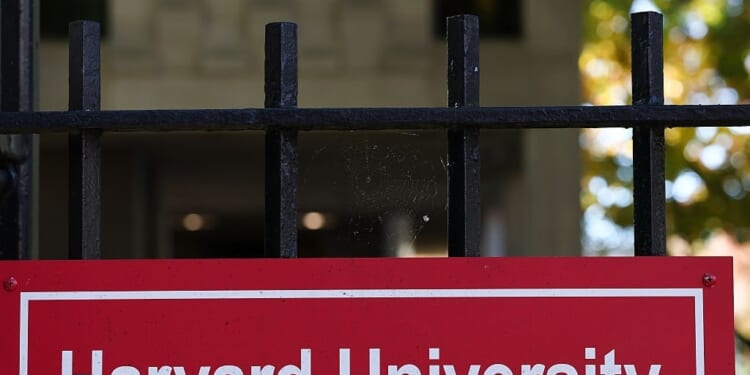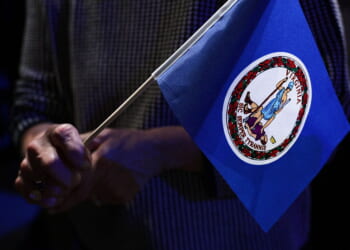Gen Z wants straight A’s.
Harvard University has suffered numerous blows to its prestige in recent years, but generally these have been earned. A recent report by Harvard’s Office of Undergraduate Education determined that Harvard has inflated grades for students so much that more than 60 percent of grades awarded to undergraduates are A’s. If everybody gets an A, merit goes out the window – and so does that hard-earned prestige. Harvard seeks to reassert traditional grading, but many woke students are weeping like overprivileged grade-A snowflakes.
Declining Harvard Standards
Aggravated by the pandemic (remote learning and testing) and a rise in social media screen time among the current college generation, the push toward grade inflation has paralleled the elimination of standardized testing and candidate selection based on skin color, sexual orientation, and other perversions of the traditional merit-based academic system. Harvard’s professors are now concerned that if they don’t pander to the demands of whining social justice students, they will receive poor student scores on reviews and lose academic prestige.
Consequently, grades have skyrocketed. The University’s internal report found that nearly all faculty expressed concern about grade inflation. The proportion of students receiving A grades rose by 20 percentage points since 2015, from a median grade point average at graduation of 3.64 to a 2025 median GPA of 3.83. The median Harvard College GPA has been an A since the 2016-2017 academic year.
In addition to less trustworthy grading, the report found that some professors have had to reduce course content. According to The Harvard Crimson:
“Some instructors, especially in the humanities and interpretive social sciences, [reported] ‘that they’ve had to trim some readings and drop others entirely, that they’ve had to switch from novels to short stories, and that it’s difficult to keep assigning reading in the face of increasing student complaints’…”
Student Tantrums on Cue
Students, however, have been vocally outraged that they may have to take old-school sit-down tests. They are learning less if class content is being pared, while receiving higher grades than their predecessors. This appears to be because they whine more – the report noted pressure on instructors to raise grades has stemmed in part from “increasingly litigious” pressure from students.
It would seem that filing a lawsuit after receiving a B would involve more work and stress than simply studying harder. Yet, student complaints about the report’s conclusions (which have prompted Harvard to seek corrective action and tighten grading systems) offer clues to the culture of Gen Z against which today’s colleges must grapple.

More than 20 students claimed, “the report missed the complexity of academic life at Harvard,” which seems to translate to beer pong and attending anti-Israel rallies. They warned that “stricter grading could heighten stress without improving learning.” (By this metric, no one should be graded at all, to maximize learning.) One student reported that she skipped classes for the day when she learned of the report because it was “soul-crushing.” She cried “the whole entire day” and “was just sobbing in bed.” (Well, the first day on a real job will be a soul-crusher for sure.)
The Harvard Crimson reported that “many students said the push felt misguided, warning that tougher grading, without attendant changes in academic quality, would shift their focus from learning to chasing grades.” This sounds like Kamala Harris’ Word Salad 101: Academic curricula are already being watered down to pander to kids, who are rewarded with higher grades – clearly, they are learning less when not chasing grades.
It gets even whinier. One student complained that stricter standards “could take a serious toll on students’ mental health” and that it made her “rethink my decision to come to the school.” Another whined that (inflated) grading “already felt harsh,” so raising standards “would only erode students’ ability to enjoy their classes,” stating “I can’t reach my maximum level of enjoyment just learning the material…. “If that standard is raised even more, it’s unrealistic to assume that people will enjoy their classes.”
The Re-opening of the American Mind?
The rainbow-and-unicorn generation has a rose-colored worldview reminiscent of Timothy Leary’s famous proclamation at the 1967 “Human Be-in,” where students were encouraged to “Turn on, tune in, drop out.” Today’s Harvard student body would likely award Leary an “A”, but patients on operating tables may enjoy their surgeries less if Harvard grads all spent their college time “enjoying” themselves rather than learning surgery.
Young people have become so coddled that they have been deprived of the soul-building experience of failure. A separate Harvard report found that “many students sought out easier courses to make time for extracurriculars,” which several students justified, claiming “their involvements outside of the classroom were integral to Harvard’s identity.”
But that’s the $64,000 test question for Harvard: How will it academically identify? Is academic excellence premised on demonstrable retention of practical knowledge, like how many cc’s of tranquilizer an anesthesiologist draws into a syringe for a patient? Or is it more important that the anesthesiology student was sleeping through Shangri-La University, waltzing around at a No Kings Day event in rainbow flag regalia, or perhaps screaming foul epithets at a “Trans Lives Matter” protest?
Liberty Nation does not endorse candidates, campaigns, or legislation, and this presentation is no endorsement.

















